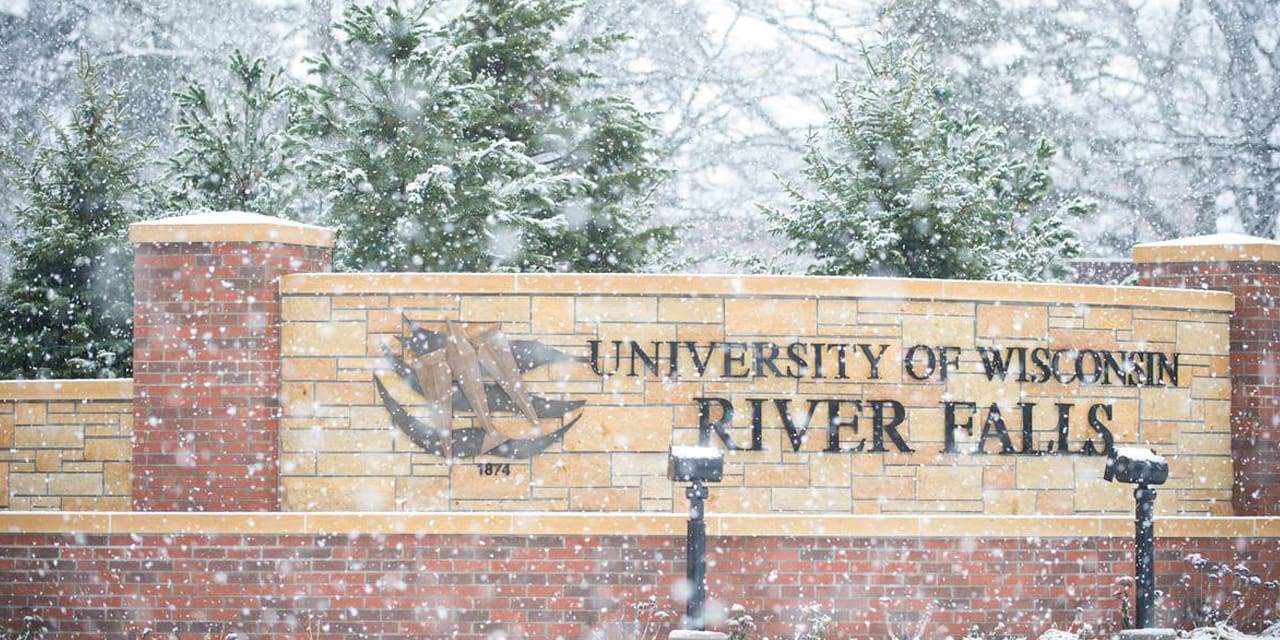University of Wisconsin ‘Speech Zones’ and Permission Requirements Drive Individual Students Off-Campus

The University of Wisconsin – River Falls Campus (UWRF) is the latest public institution of higher education to completely miss the point of the First Amendment’s guarantee of free speech. Last September, Freshman Sophie Salmon and a friend took a page from other campuses’ organizing playbooks and walked around UWRF pushing a large inflatable beachball, which they dubbed a “free speech ball” in an effort to attract a crowd and engage with students about organizing a conservative club on campus. Students were also encouraged to write comments about free speech on the ball.
Sophie was stopped by a school administrator who told her she wasn’t permitted to speak on campus unless she was part of a school club.
Stop me if you’ve ever read “Catch 22” by Joseph Heller or seen the movie and noted the irony of Sophie’s situation.
The school’s regulations regarding free speech for individuals requires them to either stay on the outskirts of campus on public sidewalks, or pay for permission to speak on campus, in spots designated by the school. And the school can deny any person the right to speak for any reason, including viewpoint.
Alliance Defending Freedom is representing Sophie in her attempt to get the school to align its policies with the First Amendment. “The only permission slip students need to speak on public college campuses is the U.S. Constitution,” said ADF lawyer Caleb Dalton in a press release. The First Amendment doesn’t allow a university or college to play favorites or limit free speech to so-called ‘speech zones.’”
The current University of Wisconsin – River Falls policies are unconstitutional,” Dalton continued, “because they force students to ask permission before speaking and allow school administrators to silence student speech based on viewpoint or other vague, arbitrary reasons.”
ADF wrote a letter to the school in an attempt to inform it concerning Sophie’s rights, setting a deadline of February 24 to hear back from the school as to whether it has either changed its policies or is willing to work with ADF to change them.
Public entities like UWRF are allowed under the First Amendment to condition speech on campus property with reasonable time, place and manner restrictions. Many schools, including UWRF, operate under a misunderstanding of what that means. They go too far and end up violating the constitutional rights of speakers on campus, or worse, deliberately target viewpoints they disagree with and don’t want on campus. Or these institutions grant themselves wide discretion to block free speech, without providing any concrete guidelines that students can see beforehand. Such “arbitrary discretion” is not allowed under free speech court precedents.
Sometimes all it takes is a letter like ADF’s to alert an institution to a problem, and policy changes follow. Let’s pray that such will be the case with Sophie’s search for free speech at UWRF.
Related stories:
Love (and Free Speech) Wins on a Wisconsin College Campus
Wide Disparity in Free Speech Attitudes on College Campuses
Cal State – San Marcos Pays Pro-Life Student Group $240,000 in Settlement of Free Speech Violations
FIRE Names America’s 10 Worst Colleges for Free Speech in 2020
Montclair University Forces Students to Get Permission Two Weeks Before Speaking Freely on Campus
Duke University Denies Young Life ‘Official Status’ on Campus
Cornell Group Invites, Then Disinvites Pro-Life Speaker Over Her Religious Views
Photo from Facebook
ABOUT THE AUTHOR

Bruce Hausknecht, J.D., is an attorney who serves as Focus on the Family’s judicial analyst. He is responsible for research and analysis of legal and judicial issues related to Christians and the institution of the family, including First Amendment freedom of religion and free speech issues, judicial activism, marriage, homosexuality and pro-life matters. He also tracks legislation and laws affecting these issues. Prior to joining Focus in 2004, Hausknecht practiced law for 17 years in construction litigation and as an associate general counsel for a large ministry in Virginia. He was also an associate pastor at a church in Colorado Springs for seven years, primarily in worship music ministry. Hausknecht has provided legal analysis and commentary for top media outlets including CNN, ABC News, NBC News, CBS Radio, The New York Times, the Chicago Tribune, The Washington Post, The Washington Times, the Associated Press, the Los Angeles Times, The Wall Street Journal, the Boston Globe and BBC radio. He’s also a regular contributor to The Daily Citizen. He earned a bachelor’s degree in history from the University of Illinois and his J.D. from Northwestern University School of Law. Hausknecht has been married since 1981 and has three adult children, as well as three adorable grandkids. In his free time, Hausknecht loves getting creative with his camera and capturing stunning photographs of his adopted state of Colorado.
Related Posts

Sidewalk Evangelist Wins Right to Share Good News
October 31, 2025



